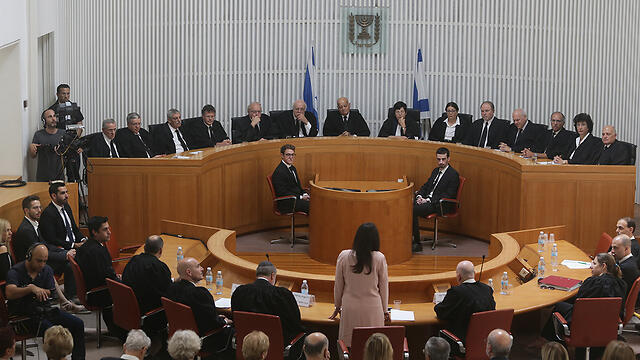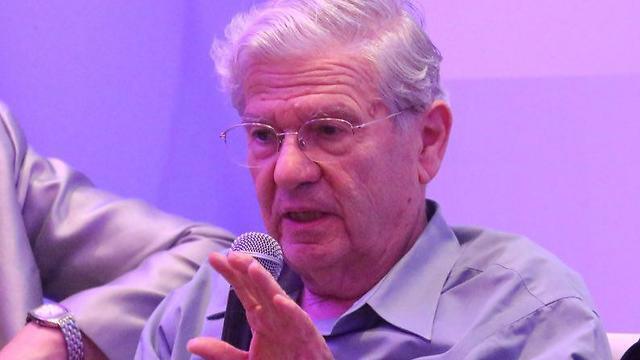Getting your Trinity Audio player ready...
MK Moti Yogev from the Bayit Yehudi party is not a senior politician, but in the public discourse's pantheon of one-liners, he had already guaranteed his place. "A shovel of a Caterpillar D9 bulldozer should be raised against the High Court of Justice," he said in July 2015, in response to a ruling concerning two buildings in the settlement of Beit El. This comment tested all limits of metaphor, giving it a physical aspect and reflecting the desire to significantly reduce the influence of the High Court of Justice on Israel's character.
Since then, every High Court decision on a sensitive topic is accompanied by the noise of the engine of that D9. The political responses to the judges' rulings—which later seep into online discourse—are not only disconnected, almost entirely, from the decisions and the reasoning behind them but also compete against each other in their level of belligerence and tongue-lashing.
In that sense, the speech by the justice minister this week was a seminal moment, in which the minister in charge of the justice system actually announced that the handbrake will soon be released and the wheels of the machine will start turning.
Ayelet Shaked's comments, however, should come as no surprise to anyone. Her worldview is well known and clear. Furthermore, if there is anything that makes her such a significant player—compared to, for example, the hollow provocations of Culture Minister Miri Regev—it is the combination between consistency and effectiveness.
So far, her desire to weaken the Supreme Court has been curtailed by Finance Minister Moshe Kahlon. "Whenever there is need to protect the Supreme Court, we take it upon ourselves to do so," Kahlon said in December 2016. "If we lose the Supreme Court, what will we have left?"
But the finance minister's voice hasn't been heard much this week. Perhaps now, after the court struck down his third apartment tax law ,he feels less compelled to back the institution the defense of which he once compared to the work of a soccer goalkeeper. And perhaps he too understands where the wind blows, so he picks and chooses his battles well. After all, he's not lacking in that department.
Even among some factions of the political left-wing, the High Court is not what it used to be. Even during the tenure of Aharon Barak as chief justice, the Supreme Court's rulings on defense and the settlements marked it as one that de facto legitimizes the occupation and even lends it an aura of prestige thanks to the court's esteemed standing in the world.
After Barak and Dorit Beinisch, the court's image was definitely not going to change under chief justices Asher Grunis and Miriam Naor. So the possible erosion of the Supreme Court's status raises what might be somewhat of an ironic chuckle among those left-wing factions. With the High Court or without it, what difference does it make anymore?
And so, the High Court has been left on its own, operating on the fumes left of what was once collective consensus. "The people" are growing tired of the court, or at least that is what some of their more prominent representatives are saying.
The view of the court as an ivory tower, home to self-appointed gods, is becoming more and more common, and this is reflected in different confidence indexes. Last May, for example, the Rule of Law Index by Prof. Arie Ratner of Haifa University found that 49 percent of Jewish Israeli citizens have confidence in the Supreme Court. In 2000, that rate stood at 80 percent. This isn't a slip or a drop, it's a collapse.
Needless to say, the High Court's image among the public cannot remain as it is now. Eventually, there will be a political constellation that could enable another constitutional revolution—the kind hoped for by powerful players such as Minister Shaked and Minister Yariv Levin—which will be powered by support from the people. The D9 is already fueled to the max. The only thing that's left is to step on the gas.



